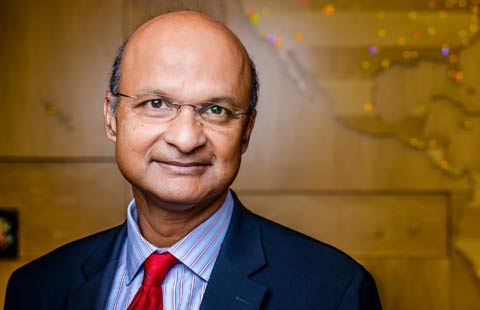What will die first, cash or password?
He added that seldom people use proper protection on their mobile devices.
"Whenever a software or hardware is designed, apart from making it user friendly, people should realize that something can be malicious or easily mimicked," he added.
What is the future for mobile payment?
Information company Nielsen Holdings PLC's latest "Global Connected Commerce" report found that 86 percent of Chinese respondents said they used some form of digital payment systems to pay for online purchases in the past six months, a number that was far higher than all the 26 surveyed countries' average of 43 percent.
The survey polled 13,000 respondents in 26 countries to determine the approach of consumers to e-commerce.
"Chinese consumers have more payment choices for products and services than ever, while digital payment will continue to win over more Chinese consumers due to its convenient nature," says KiKi Fan, managing director of Nielsen China.
Meanwhile, new digital verification methods will also hit the market as the technology matures.
Alipay, the mobile payment application produced by Chinese e-commerce conglomerate Alibaba's financial arm Ant Financial, has introduced new digital payment approaches to the users, allowing its registered customers to process payment via voiceprint or even virtual reality head-mounted goggles.
"Emerging technologies, such as ultra sound or optical solutions, have been developing to feed consumer's sweet spots, while fingerprint approach won't be replaced due to its convenience feature," said Precise Biometrics' Persson. "The new adoption of other biometric modalities will continuously increase and become complementary to fingerprint technology."
As the third-party payments apps such as Alipay and Tencent Pay or NFC-driven Apple Pay are widely used in China, people can now effortlessly survive a day without cash, making all their payments digitally with a smartphone.
Statistics from China's central bank, People's Bank of China, show that as of the end of last year, the national average of credit cards per person declined to 0.29.
A survey conducted by the Payment & Clearing Association of China (PCAC) also found the surging cashless trend. It said that 47.5 percent of the country's payers have tended to choose mobile payment since it is no more necessary to carry cash or any bank cards.
Will the mobile payments completely take over cash and physical cards and accelerate the cash-free society to become a reality?
"It's up to our consumers, if they want to use mobile payment, we'll help digitalize their Master cards and process to purchase in a secure and convenient way," said a spokesman of MasterCard.
"We've used tokenization platform MasterCard Digital Enablement Service -- also known as 'MDES', to help Samsung, Google and Apple users to make the payment transactions," he added.
The company has also unveiled Masterpass QR, a QR code enabled payment option that lets customers pay for goods and services from their smartphones, to boost digital payment.
"We'll prefer a world without passwords, a world where making payment becomes more convenient and frictionless though individual's biometric authentication solutions," he said. "Eighty-five percent of the transactions in the world are still carried using cash. Payment cards and cash have co-existed for many years and so has mobile payment. I don't think digital payment will take over cash or cards overnight. The adaption process will take time."
- Wuxi among China's highest spenders on mobile payment platforms
- Mainland mobile payment services expand rapidly in Taiwan
- Tencent, Starbucks partner to offer quick mobile payment service
- Mobile payment more favored, but security concerns linger: report
- French department store adopts Chinese mobile payment to lure Chinese tourists

















